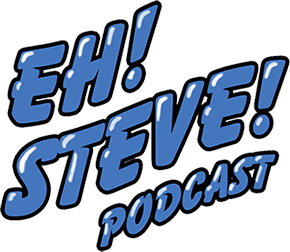Full Archive
A complete archive of every post, unsorted.
Everything's not fine, but I have a feeling it could be if I work hard enough

This essay was originally written with pen and paper during my bedridden time recovering from a pinched sciatic nerve. In hindsight I wish I had done more handwritten essays to later transcribe, and may do more in the future just for the fun of it.
It’s likely you never noticed the lack of foul language upon this blog of late. An absence of colorful outbursts in Eh! Steve! has freed me to strip the “explicit” tag from the latest episodes like a band-aid from a healed wound. The past few episodes of RamblePak64 have also been free of “colorful language” – an amusing term considering such words are more like rusted iron bludgeoning the ear canal than chromatic concertos of poetry.
This absence has been an active effort to exorcise cursing from my daily vocabulary. One day I’d like to be able to lead youth at a Church, and while I imagine there are plenty of good leaders whose tongues occasionally slip, I’d like to be the same person no matter whose company I am in.
Months of effort were shattered to dust when an excruciating pain struck along my thigh, flooding my mouth with a torrent of filth. I cannot adequately describe the torment as over a week of time has smeared my memory into an unfocused fog. All I can say was how every fiber of muscle seemed to pull and tear apart, yanking fiercely at the tendons tethering them to bone. My fingers gripped the coat hanger of my brother’s car passenger seat, a piece of plastic I once referred to as the “oh-5#!+-bar” – I’m sure you master code crackers can decipher my meaning there.
As my brother drove us home from the doctor’s he began to discuss something regarding the anime Darling in the Franxx. The sound of his voice managed to breeze its way through my ears but the pain sent the words into a tumultuous storm chaotically clashing in my skull. His efforts to distract me were in vain. Soon all I could do as my leg fought to stretch out, foot pressing desperately to the floor of his car, was pray.
A productive month seeing some shaky mental ground.
When I had completed my Metroid Prime: Echoes video I had declared that if I cannot complete four videos by the end of 2018 then I would give up RamblePak64 for good. Right now, it’s looking like I’ll have four finished videos by December 31st, 2018.
As covered in Monday’s impromptu blog entry regarding depression, this is the time of year where I’m suddenly struck by infinite question of what it’s all for. It is just one of the reasons that Metroid Prime: Echoes video took so darn long to put together. My efforts to record multiple other games also met in failure, as none of the titles I had been working on have seen any sense of progress. In some ways this is better because it means my recording schedule is intertwined with my play schedule: I’m focusing on recording games I want to play rather than feel compelled to play.
Unfortunately, this plan is not foolproof. While I’m certainly happy to be recording footage of Tomb Raider and its sequel prefaced by Rise of the, the announcement of Darksiders III being an honest to God 2018 release has left me feeling a bit pressured. Part of the problem with game time is that I’d like to somehow schedule titles to play with Steve for the podcast, but our own busy lives often have us tackling games at drastically different times. Were it not for Lost Sphear and Octopath Traveler, my portable RPG experience would be playing Cosmic Star Heroine right alongside him.
An essay in which I stream-of-consciously discuss a series of feelings that I continue to struggle.

It might finally be time for me to stomach any costs and find a counselor to talk to. I don’t know if I have depression in any sort of medical sense. I simply know that I seem to keep on experiencing it. The epidemic of depressed and anxious “Millennials”, if such a label were to be accurate at all, I’ve theorized to be the result of several decades of deceitful promises and expectations. Prior generations that had grown up in the good times created standards far more difficult to reach as the economy, job, and housing markets changed. Advertisements for decades lied to the populace about the happiness commercialism would bring to one’s soul. My entire childhood was filled with children’s television programming and little plastic trophies dedicated to making every individual feel special.
This is a shared truth, but certainly does not explain every individual’s own struggles with self-worth and the treacherous journey towards contentment.
Last August I suffered an existential crisis brought upon by a few, simple sentences. I had been meaning to call an old roommate of mine, now living in California working for Blizzard. For whatever reason I had never been able to find a good time that I could just dial him up. “Oh, he’s probably busy with friends right now,” or other thoughts would cross my mind. One evening I was feeling particularly awful, sitting at my laptop trying to evacuate the harsh thoughts from my mind and welcome distractions. I opened a Facebook chat window, sending him an apology for being unable to reach out to him like I said I would.
“It’s fine,” he replied. “You were the one who wanted to chat with me in the first place. I don’t feel neglected or ignored.”
Whatever the intention behind his phrasing, this very statement struck me like a sack of bricks being wielded by a twenty-foot tall gorilla. Instead of distracting myself the noxious cloud of existential doubt ignited. My entire soul became a blistering furnace of self-doubt and a certainty of my own worthlessness.
In my latest video I dissect the mechanics and narrative of indie game Iconoclasts.
If you were to ask me if I were more proud of this video or my Metroid Prime: Echoes analysis, I’m not sure I’d be able to tell you. My only disappointment in this one is that I felt it necessary to not go too in-depth with certain matters. Perhaps a wise choice, as there are a few minor details I never noticed or considered until the editing process. Typically this is where I start to be disappointed, but while it might reinterpret some of what I said, much of my argument remains intact.
I’ll get into that a bit further down. First, some of that classic “behind-the-scenes” talk. I think the hardest part of this script for me was discussing Pacing, and even then I’m not sure I did a suitable job. It is the weakest aspect of this video, though largely attributable to how large a topic it really is. There are several different ways the term “pacing” can be applied to a game, and to try and cover good and bad examples of them all is its own demanding project. As long as YouTube is a hobby I don’t think I can ever truly dedicate the time necessary to such a video, and so I may have to return to it later.
I can only hope otherwise that I sufficiently made my points well regarding characters, their similarities, and their conflicts. The original script called for a far, far deeper dive into Agent Black, but it took too much attention and time away from other matters I wanted to discuss. I don’t know if I’ll have the time to do minor videos on some of these characters, but I certainly have plenty of footage to use.
Steve and I both have our own reasons for recommending the new God of War. The hype is real, apparently.
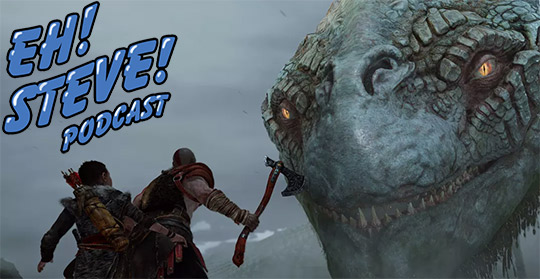
The trials and joys of the month of June.
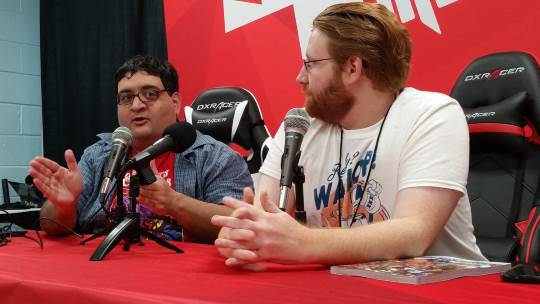
“Setbacks” seems to be the name of the game, and often I cannot help but wonder if “excuses” is a more appropriate term. At times I was too distracted to feel “down” or “depressed”, but that distraction made working on anything all the more trialsome.
At the same time, the distraction and setbacks were just what I needed. The final draft of the script has just been finished. It may seem ridiculous that I only now completed it after having scrawled out the first draft at the end of May, but there was so much in that original version that I was unhappy with. The script was confused, jumping between topics and diving too deep into elements that didn’t really say anything. I combed through bit by bit, applying both major and minor rewrites, growing ever more worried that this video was going to be an abysmal failure.
Then I found myself experiencing some pretty rough lower-back pain. Too much time sitting for my job throughout the week combined with long hours sitting in barely cushioned chairs at the coffee shop had done a number on me. An additional affliction guaranteed great discomfort for two weeks time. Little game playing had gotten done as I first spent my leisure watching E3 coverage and minimizing the discomfort of my body. I was barely able to concentrate on my job during the day, let alone spend what free time I had on the script.
Steve and I reflect on the ways E3 has changed over the years.
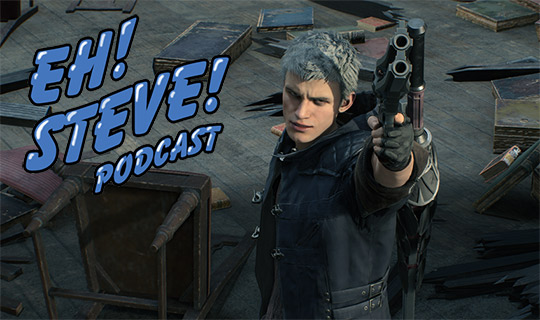
Following a second viewing, I've decided Little Witch Academia is something anyone can enjoy regardless of whether you like anime or not.
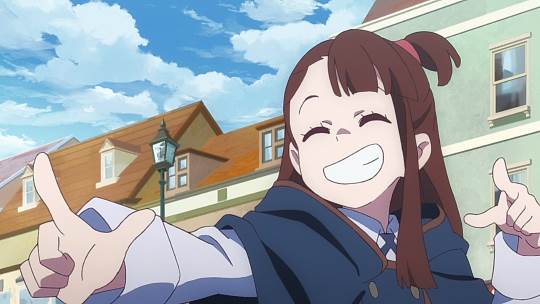
I don’t know if Little Witch Academia is the best anime Trigger has ever made, but it is certainly their most tightly woven narrative that I’ve seen (with Kiznaiver and the rest of Darling in the Franxx on my queue). As I will dive into next time in this column, Kill la Kill’s greatest struggle was its own lack of restraint. It delighted in its over-the-top style. Like the scorpion stinging the toad, its own nature doomed itself to become comparatively cluttered and at times confusing.
Little Witch Academia still concludes with an outrageous set-piece when compared to more contemporary – especially for American audiences – entertainment, but the concluding adversary is a clear manifestation of an antithesis. It is an amalgamation of the ideas that run counter to protagonist Atsuko “Akko” Katsuragi.
While at the magical Luna Nova Academy, Akko learns a variety of lessons regarding hard work, hero worship, forward progress, and believing in oneself. It is in these lessons that the major themes of the show are tackled and often interlinked.
Unlike many of the other witches attending Luna Nova, Akko is inexperienced and seems to have no knack for magic. She cannot fly a broom and struggles with even the most basic seeming spells. She is impulsive, emotional, and lacking in restraint. Diana, juxtaposed as her rival, is of noble blood, polite, and excels in magic. On the surface, these two are complete contradictions of one another.
As the show progresses we instead see that they are separate manifestations of the same seed of ideas and inspiration. Diana is not instinctively good at magic. She herself has had to invest a lot of time and effort to cast spells as efficiently as she does. She is our first lesson that no one is great – or even good – without first having to put in the effort to get there.
We also discover that Akko’s idol Shiny Chariot, the theatrical witch that inspired Akko as a child, similarly stumbled as a youth. What seemed so natural on the stage took a lot of failure and work to achieve.
While Akko never manages to cast magic as effectively as the other characters, we see her gradually improve as the show progresses. She never completely overcomes her impulsive nature, but she bounds over many external and internal roadblocks to become a much greater witch by the conclusion. Hard work may reward slowly, but it is still rewarding.
A continuation of the previous Sunday Studies, I discuss how the Church has poorly prepared its congregation to be challenged by and learn the context of the Bible.

Last time I began the first of several posts regarding the comfort and discomforts of discussing religion with non-Christians. The majority of what I covered in that post revolved around the struggle with Christian Institutions and their often shallow, divisive nature. Not only has the Church encouraged its membership to avoid being a part of the world – counter to Jesus himself – it has only driven some of its deeper thinkers away. It is an irony to me that some of the older gentlemen at my Church refer to me as a “deep thinker”, for the only thing I know is that my ignorance far outweighs my knowledge.
Which leads me to my next point. One of the common themes since this column’s inception has been my fear of seeming ignorant. In some ways this is simply my lack of self-esteem talking. In others, though, I must wonder if it’s a lack of proper Church leadership and teaching.
Speaking with colleagues on the matter, many have expressed a common belief that the Sunday sermon should not be too challenging. If they come to Church and feel bad or guilty after the service, it’s possible they won’t look forward to coming back. If they don’t come back, that’s fewer donations to help keep the Church alive. This is not a claim about Churches being greedy, just an acknowledgment of a very understandable fear: a Church’s livelihood.
I can understand the perspective, but without challenge then you aren’t speaking the word of God. A sermon should challenge but it should not condemn. The pastor should draw from the Bible stories and testimony that cause the audience to ask themselves, on a personal level, how they might be faltering. At the same time we must also be reminded that we, as Christians, are followers of Jesus Christ and not Jesus Christ himself. We are bound to falter. What matters is we try to be better.
Steve and I finally get around to discussing Avengers: Infinity War long after everyone else stopped caring.
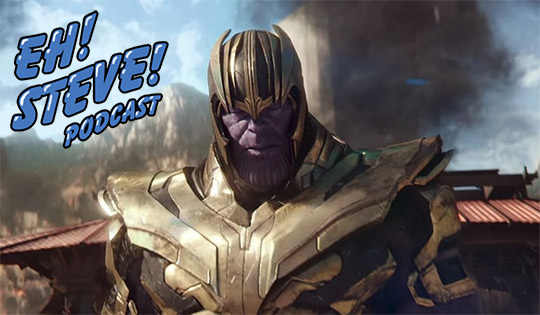
I begin a three-part series where I contemplate my anxieties over discussing religion and faith with non-believers.
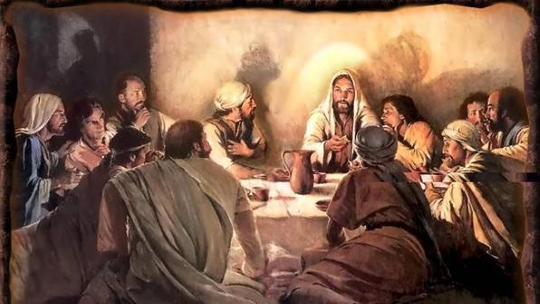
And Levi made him a great feast in his house, and there was a large company of tax collectors and others reclining at table with them. And the Pharisees and their scribes grumbled at his disciples, saying, “Why do you eat and drink with tax collectors and sinners?†And Jesus answered them, “Those who are well have no need of a physician, but those who are sick. I have not come to call the righteous but sinners to repentance.â€
A similar encounter occurs again in Luke 15, a chapter I had read this past week. While it would have been more appropriate for me to have quoted that passage, I feel this one illustrates a similar point more succinctly. Christ is dining not with the priests and scribes, but those looked down upon as sinners.
Both confrontations have taken up residence in my mind, occasionally popping out of their bedrooms and imposing upon me their presence. What seems a simple, straight-forward message is soon over-complicated by my own contemplations, and before I know it I’m submerged so deep I can no longer see the light glistening upon the surface.
This has become commonplace as the Bible continues to spark my mind. Ideas that seem fascinating enough to openly ponder suddenly become overwhelming as I scribe letter to document. The natural rebound from my overzealous desire to act, I suppose. Further confirmation that creating a column for such things was none other than a jumping gun.
A surprisingly productive month leaves me full of optimism for the future.
Well, what do you know? I actually completed a video this month.
It was not without issue. My rush to complete the script resulted in a number of erroneous claims, and my efforts to correct them generated further false declarations. The Internet itself was inconsistent as to how some of the game’s systems worked, and ultimately I had footage that poorly matched anything I wrote, said, or researched. For a brief period I found myself distraught and tempted to give up on the whole thing. Instead, I pushed onward and largely left the audio untouched.
I’m proud to have completed another video so swiftly after the previous, but rushing the video to completion also meant an inferior product. While I was never expecting a video on Fire Emblem: Warriors to draw a crowd, I largely haven’t promoted the new critique due to a lack of confidence in its depth.
Steve and I try to be positive about the Warmind expansion for Destiny 2.
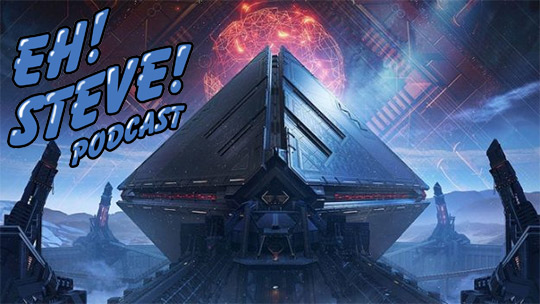
It's just a standard shonen fighting anime, right? So what keeps me coming back?
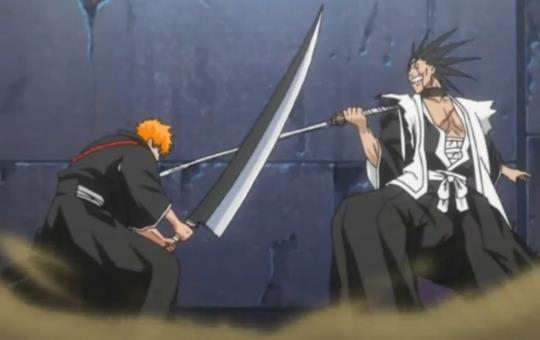
I recall my first impression of Bleachbeing a rather negative one. The protagonist Ichigo seemed to suffer from what I exasperatingly called “The-One Syndrome”, wherein the show must pause every episode to inform you how great of a prodigy our protagonist was. The fictional characters stood in awe of his might while I yawned and rolled my eyes at the already well-worn archetype. This was great when I was in middle school and watching DragonBall Z every Sunday, but it wasn’t enough to hold my interest in College.
What baffles me is despite such a first impression I continued to watch anyway. I suppose when you’re failing and withdrawing from half your classes you suddenly have an abundance of time available. Even so, that I must have abandoned Naruto by this point makes it all the more confusing.
I persisted with Bleach throughout the Soul Society arc – the first sixty-some episodes – before finally giving up during the “Bounts” arc of filler. While I looked upon it more favorably than Naruto, I was ready to abandon the show completely as another shonen series that failed to learn from DragonBall Z’s mistakes. In hindsight, it’s more that Bleach had begun to create a whole new series of mistakes.
Years later I decided to return to Bleach upon news of the show’s cancellation. Perhaps I had grown curious as to what Aizen had been plotting all these years later. Beginning fresh once again, the Soul Society arc was incredibly addicting to watch while the following Bount arc was suffered only by the grace of binging through. In time, despite the superiority of the Arrencar arc to the Bounts, I was left feeling exhausted by the series. I once more abandoned Bleach.
Over the past few weeks I could not resist the compulsion to come back once more. Conversations with my brother might have sparked some positive memories. He had many a negative assumption, yet I felt as if there was something the show had that others did not. As a result, I returned once more to that very first episode, latched onto Soul Society once more. Why? What is so compelling about Bleach that keeps me coming back while Naruto rots in the dumpster of my memory?
An explanation of why I love one of Nintendo's more underdog titles for the Switch.
I under-estimated this video from start to finish, and if I’m speaking honestly it is only up right now because I expect it to be one of my least popular videos simply based on the game itself. I don’t expect people to be interested in why Fire Emblem Warriors might be better than they’d assume. This video was put out in the haste it was because I’m eager to move on to Iconoclasts.
I’d rather be honest about this, because if people think it’s a poor video I want them to understand that I recognize it and fully blame myself. Of course, if I thought the modifications necessary could have truly made it better, I’d have taken the time to do them. I put in the effort to rerecord three whole audio segments due to erroneous information, only to scrap two of those bits in the final editing phase. One correction turned out to be even more erroneous than the original recording, and the second was inconsistent with my footage. In the end, I decided the point I was making was fluff and discarded it.


